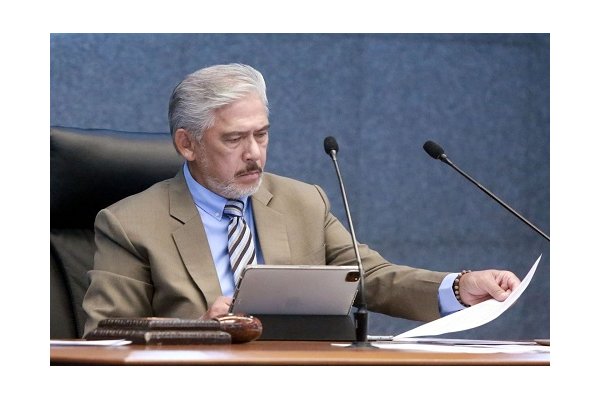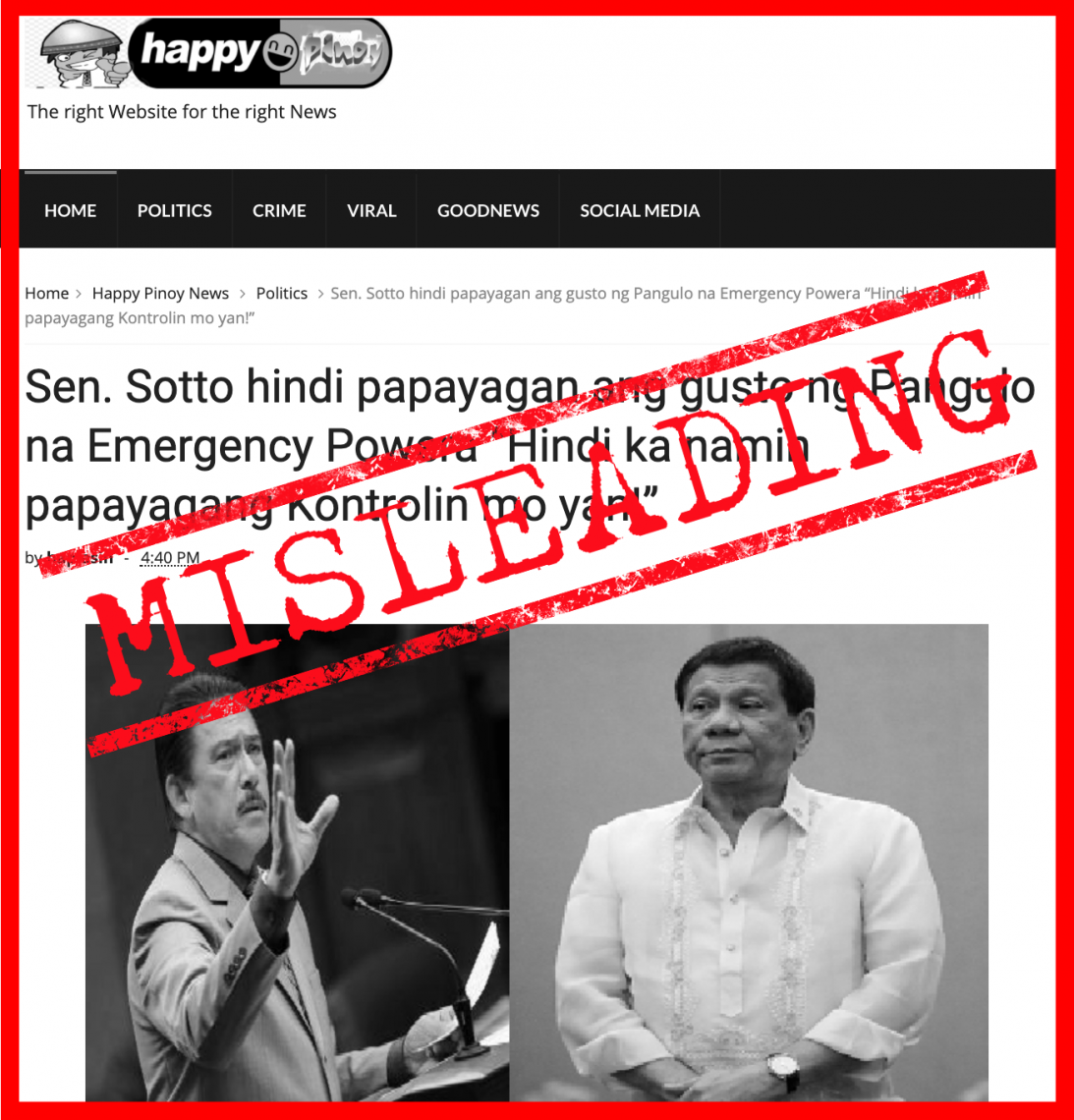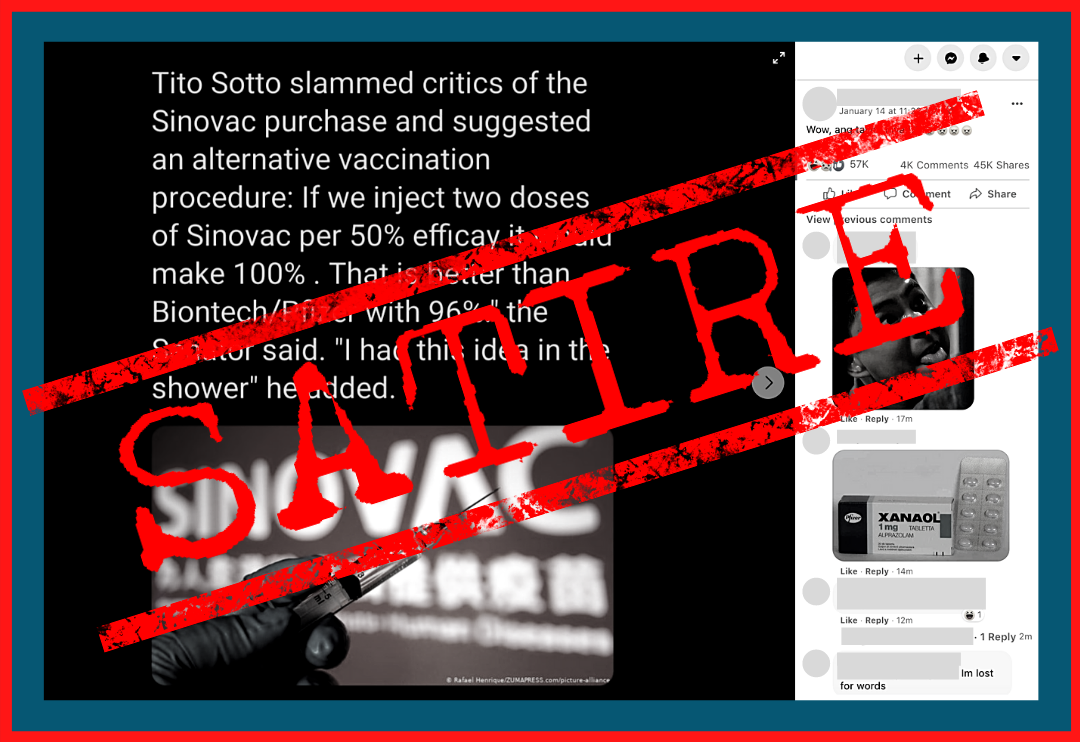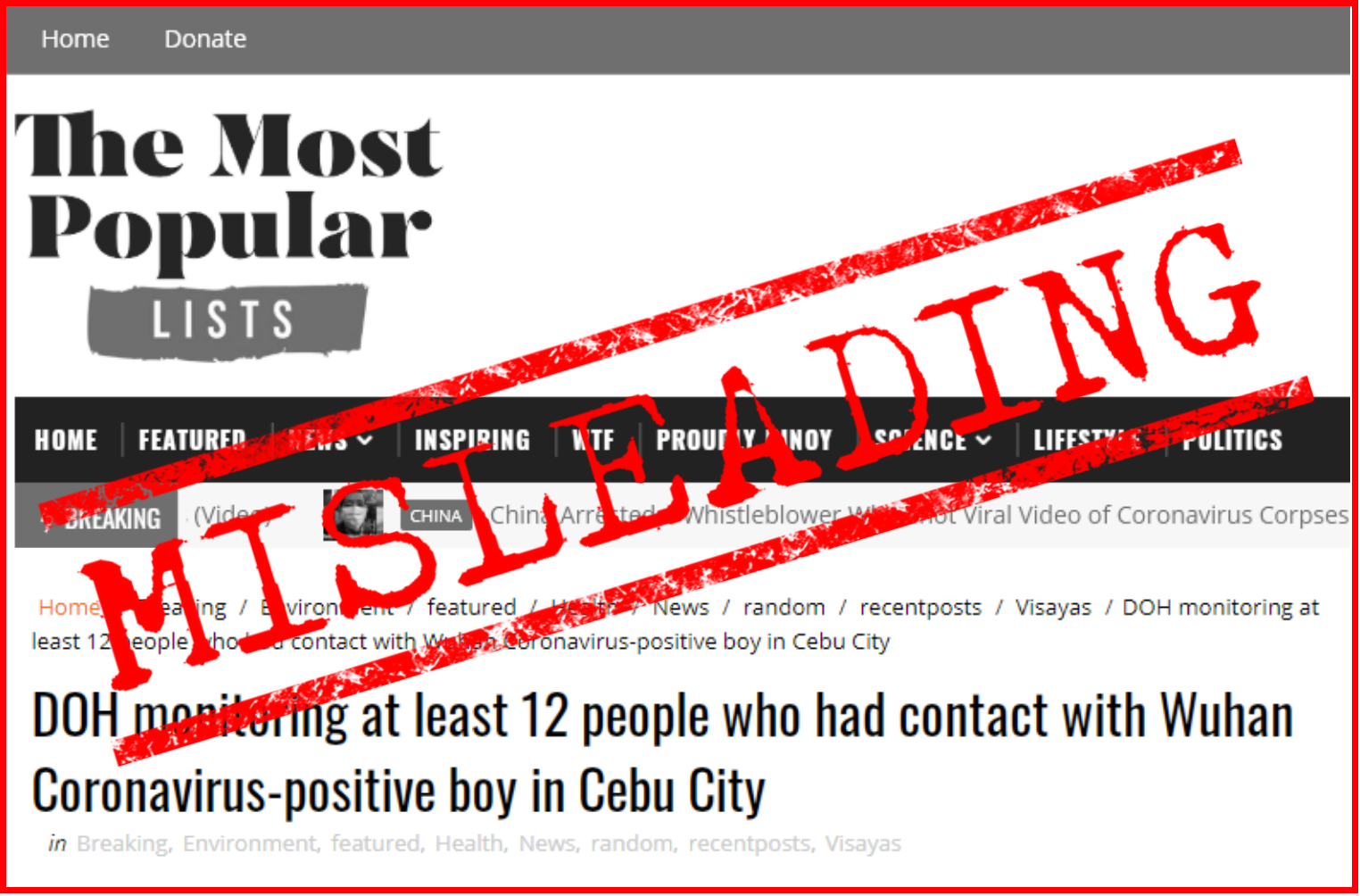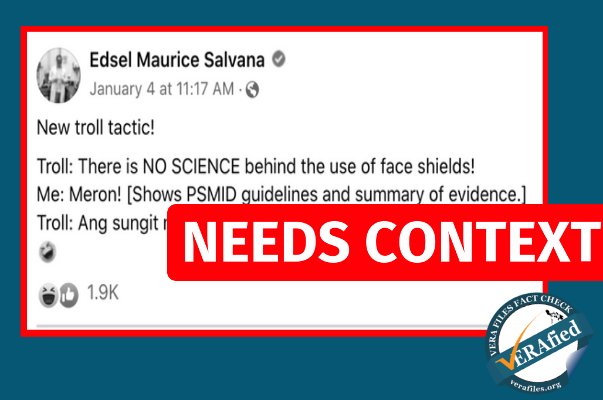In comparing the compliance of citizens in the Philippines with those of its neighboring countries on following coronavirus disease 2019 (COVID-19) health protocols, Senate President Vicente “Tito” Sotto III erroneously claimed that Singapore is under martial law.
STATEMENT
In a March 13 radio interview on DWIZ, Sotto said he agreed with the government’s move to impose more stringent measures, such as extending the curfew hours and prohibiting public displays of affection, to address the continuous spread of the virus in the country.
The Senate president then cited Singapore as an example, saying, while it “already has good [COVID-19] statistics, it still employs strict [measures].” He said:
“[M]aganda na ang statistics nila, pero mahigpit pa rin. Bakit? Kasi may martial law do’n eh, dictatorial doon eh, alam naman natin … Dito sa atin, hindi eh. Kaunting maghigpit ang gobyerno, palag ang tao, reklamo kaagad eh, ‘di ba?”
([Singapore’s] statistics are good but it still has stringent [guidelines]. Why? Because it is under martial law, under a dictatorship, as we know … Unlike here [in the Philippines]. When the government becomes a little bit strict, the public is quick to resist and criticize, right?)
Source: Senate of the Philippines, Press Release: Transcript of interview of Senate President Vicente C. Sotto III with Cely Bueno and Raoul Esperas of DWIZ (Archived), March 13, 2021, watch from 11:00 to 11:41
Sotto added:
“Lamang ‘yung paranoid kaysa sa pabaya. ‘Yung mga paranoid na bansa, Taiwan, Singapore … Vietnam … ang higpit do’n eh, walang freedom of speech do’n, walang freedom of expression do’n eh. Anong nangyayari sa kanila? Eh ‘di ang ganda ng sitwasyon nila.”
(It’s better to be paranoid than to be reckless. The countries that are paranoid, Taiwan, Singapore … Vietnam … they are strict, [they don’t have] freedom of speech, no freedom of expression, [but] what is happening to them? Their conditions are good.)
Source: watch from 12:37 to 12:55
The Philippines is the most-hit country in the Western Pacific Region of the World Health Organization — which also includes Taiwan, Vietnam, and Singapore — as of March 23. (See Southeast Asia: Six Tips for Unpacking COVID-19 Numbers)
FACT
Singapore is not under martial law — a fact reiterated by the Singapore Embassy in Manila, in an email to VERA Files Fact Check on March 17.
Martial law, defined as the imposition of military rule in cases of emergencies where civilian authorities cannot maintain public order and safety, such as in war, was last declared in Singapore in December 1941, or almost 80 years ago, when it was still under British rule during World War II.
In 1965, Singapore became an independent and sovereign republic with a parliamentary democracy system, in which the people directly elect their president as the head of state, as well as majority of the members of Parliament.
Under Singapore’s Constitution, a Proclamation of Emergency may be issued by the president if she is “satisfied” that a “grave emergency exists, whereby the security and economic life” of the country is threatened.
Freedom of speech, expression
Singapore was listed as “partly free” in the 2020 annual global report of Freedom House, a nonprofit organization based in the United States that conducts, among others, “country-by-country assessment of political rights and civil liberties.”
It noted that, while there is “some space” for personal expression and private discussion, the “threat of defamation suits and related charges” serve as “deterrents to free speech, including on social media.”
The government also makes use of “racial or religious tensions and the threat of terrorism to justify restrictions on freedom of speech,” according to the report, which was launched in March last year. The 2021 report for Singapore has not yet been released as of writing.
Meanwhile, contrary to Sotto’s claim, Taiwan was described by Freedom House in its 2021 report as “free,” having “generally robust” protections for civil liberties and a “vibrant and competitive democratic system” in place.
Sources
Senate of the Philippines, Press Release: Transcript of interview of Senate President Vicente C. Sotto III with Cely Bueno and Raoul Esperas of DWIZ, March 13, 2021
DWIZ Facebook, IZ Balita Nationwide Sabado-Tanghali, March 13, 2021
World Health Organization Western Pacific Region, “#COVID19 confirmed cases and deaths reported by countries and areas in the World Health Organization (WHO) Western Pacific Region over the past 24 hours…,” March 23, 2021
Personal communication with Singapore Embassy in Manila, March 17, 2021
Cambridge Dictionary, martial law, Accessed on March 17, 2021
Merriam Webster, martial law, Accessed on March 17, 2021
National Library Board of Singapore: Newspapers Archive, Martial Law Proclaimed in Singapore, Dec. 31, 1941
National Archives of Singapore, The Fall of Singapore – Sequence of Events, Accessed on March 17, 2021
Singapore Infopedia, Straits Settlements, July 29, 2014
Prime Minister’s Office Singapore Official Website, The Government
Singapore Statutes Online, Constitution of the Republic of Singapore: Part XII, Section 150: Proclamation of Emergency
Freedom House, Freedom in the World 2020, Singapore
Freedom House, Press Release: Freedom in the World 2020 finds established democracies are in decline, March 4, 2020
Freedom House, Freedom in the World 2021: Taiwan
Kopi, What Happens If Singapore Declares a National Emergency?, March 22, 2020
(Guided by the code of principles of the International Fact-Checking Network at Poynter, VERA Files tracks the false claims, flip-flops, misleading statements of public officials and figures, and debunks them with factual evidence. Find out more about this initiative and our methodology.)
